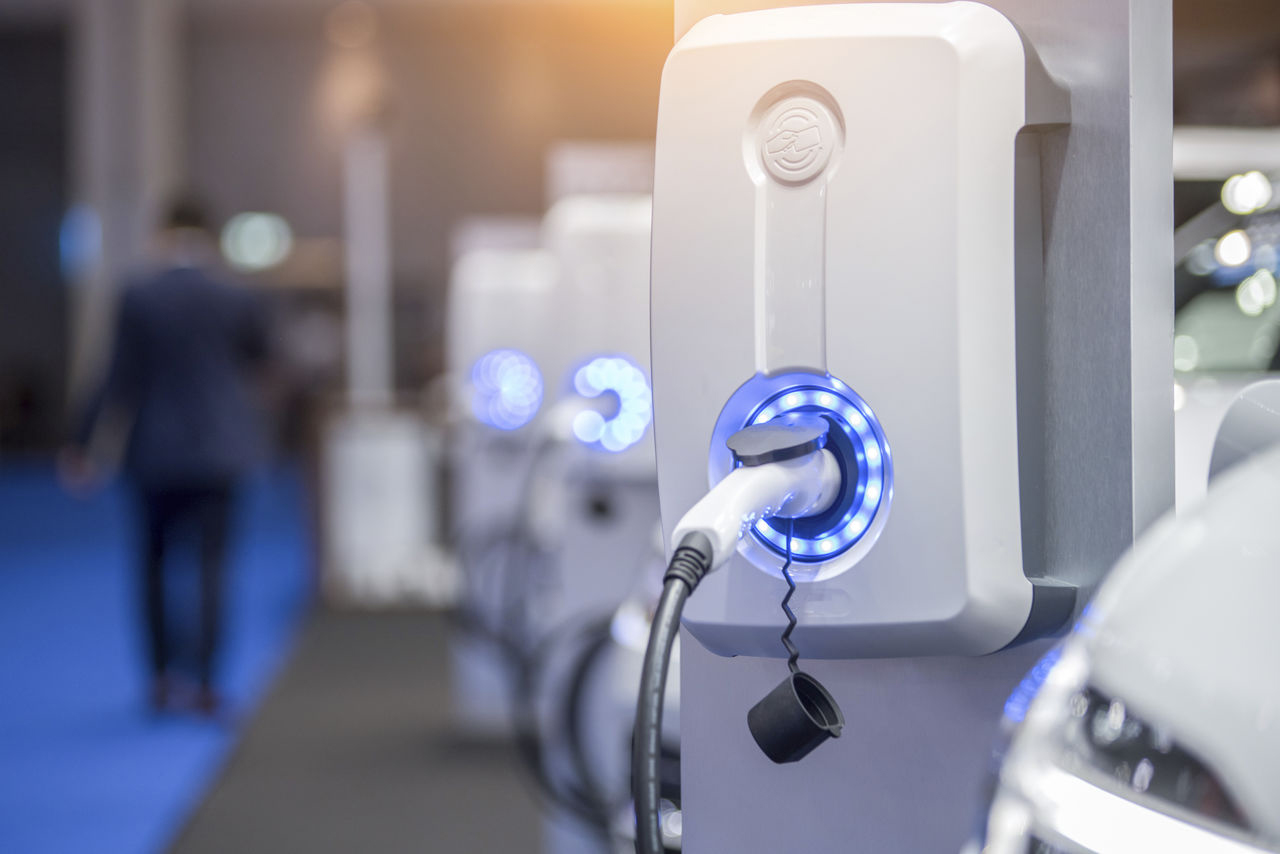
Smart ways to shift the journey towards EVs for everyone into the fast lane
As part of the Electric Vehicle Energy Taskforce, National Grid has helped to create the Energising our electric vehicle transition report. The report sets out a raft of recommendations to illustrate how the UK can lead the way in transitioning to electric vehicles in a cost effective and efficient way that benefits everyone.
The shift to electric vehicles (EVs) will play a key part in helping to reduce carbon emissions, as the majority of these harmful greenhouse gases now come from transport. But a successful transition to EVs depends on preparing the electricity network to support this radical change to how we get around.
Estimates have previously suggested the cost to achieve this could run into tens of billions of pounds. But today, the Electric Vehicle Energy Taskforce (EVET) has released a report that offers recommendations that could help to both significantly reduce the cost of electrifying transport and facilitate faster adoption of EVs.
The EVET Energising our electric vehicle transition report is the result of a huge collaboration between organisations, spanning across transport, energy, the automotive industry, tech and local and central government. National Grid lies at the heart of the energy system and was involved in the development of the report, helping to shape the recommendations based on our expertise in running and managing electricity transmission system across the country.
The EVET’s work focused on addressing two key challenges:
- How can the impacts to the electricity system be managed efficiently?
- How can consumers be provided with a good EV charging experience?
Encouraging the EV revolution
The report contains a raft of proposals to help deliver an efficient and cost-effective transition to EVs, including:
1. Intelligently controlled ‘smart charging’ for EVs
To keep down charging costs and reduce the impact on the electricity system, EVs could be charged at times when there is surplus capacity, for example overnight, or to help balance the output from renewable generators, for example when the wind is blowing. Charging times could be controlled based on the price of electricity, carbon intensity or available capacity on the network. Smart charging has the potential to deliver savings in reinforcement costs for DNOs.
2. Incentives to encourage EV drivers
These range from ensuring drivers feel their data is kept safe – so they are happy to share it to enable intelligent charging – to offering financial incentives to ensure the storage capacity offered by EVs can be used to reduce peak demand and absorb excess renewable energy generation, helping to balance the system as more renewables are brought onto the grid.
3. Convenient charging points
To speed up adoption, there needs to be a network of easily accessible, standardised ultra-rapid charging points to increase the appeal of EV ownership.
4. Coordination between energy and transport
This needs to happen at both a local and national level, to ensure we have the right infrastructure in the right place.
“It's crucial that we create an electric vehicle charging infrastructure that works for everyone as part of our journey to a Net Zero future. We can't leave anyone behind in this revolution and must help to improve air quality for all across the whole UK,” explains Graeme Cooper, National Grid Project Director for Electric Vehicles.
“We've been privileged to help shape the UK's plans for that as part of the Energy Taskforce's report Energising Our Electric Vehicle Transition, which is published today. We now urge the Government to use the upcoming Budget and National Infrastructure Strategy to help unblock the private sector investment required to ease consumer range anxiety.”
The Energising our electric vehicle transition report helps to drive forward the journey toward the electrification of transport, which will help us achieve the goal of reaching net zero by 2050. It offers concrete proposals that could help speed up the mass adoption of EVs, so everyone can benefit from cleaner transport, while also delivering cost savings and supporting a reliable, greener energy system.


